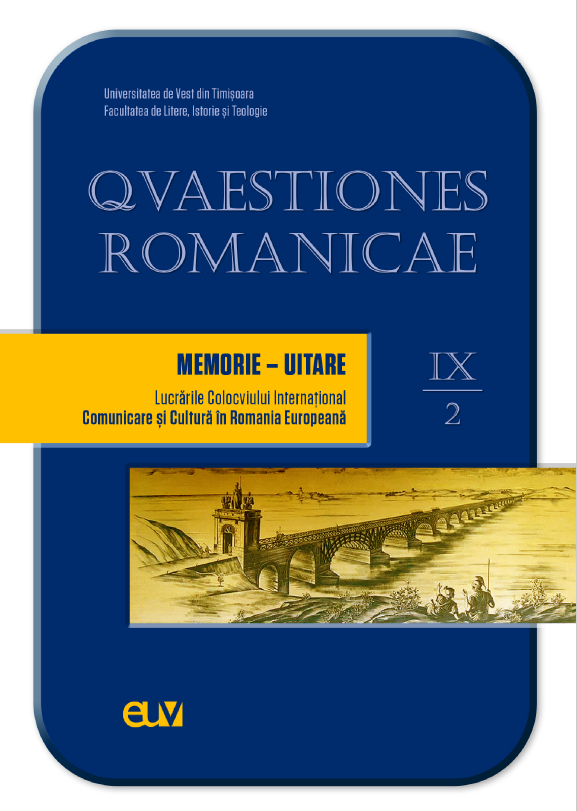La relegatio di Ovidio nella memoria letteraria contemporanea romena e italiana
Ovid’s relegatio in contemporary Romanian and Italian literary memory
Author(s): Corina-Gabriela BădelițăSubject(s): Comparative Study of Literature, Romanian Literature, Italian literature
Published by: Universitatea de Vest din Timişoara
Keywords: Ovid; relegation; memory; metamorphosis; reinterpretation;
Summary/Abstract: Ovid’s exile has always exerted a great fascination on generations of historians, literary critics, artists and writers from all over the world, perhaps because the reasons that led to the poet’s relegation to Pontus – suspended between carmen, error and aliquid vidi – are still shrouded in the most enthralling mystery. Furthermore, even the Tomitan elegies of the last Ovid arouse many debates around his exile experience, both internal and external. The historical memory, for lack of irrefutable sources, is unable either to solve the questions that hover around the subject, or to do justice to the Sulmonese, thus leaving room for many hypotheses and interpretations. Thus, the literary memory takes advantage of it, completing, integrating, enriching Ovid’s fortune with new points of view and angles of light and keeping it still alive. In this paper we will analyse four novels and two short stories by (mostly) Romanian and Italian writers: God was born in exile. Ovid’s Diary to Tomi di Vintilă Horia, Il diario di Ovidio by Marin Mincu, Sulle rive del Mar Nero by Luca Desiato, Ovid, the Augustan Scapegoat by Michael Solomon, “Sogno di Publio Ovidio Nasone, poet and courtier” by Antonio Tabucchi (1992) and “Pontus Axeinos” by Mircea Cărtărescu. We aim to grasp the novelty of each reinterpretation and understand whether, from the Ovidian image outlined in the six works, we can deduce the traces that the poet’s exile has imprinted in the collective memory of Romania and Italy.
Journal: Quaestiones Romanicae
- Issue Year: IX/2022
- Issue No: 2
- Page Range: 105-115
- Page Count: 11
- Language: Italian

